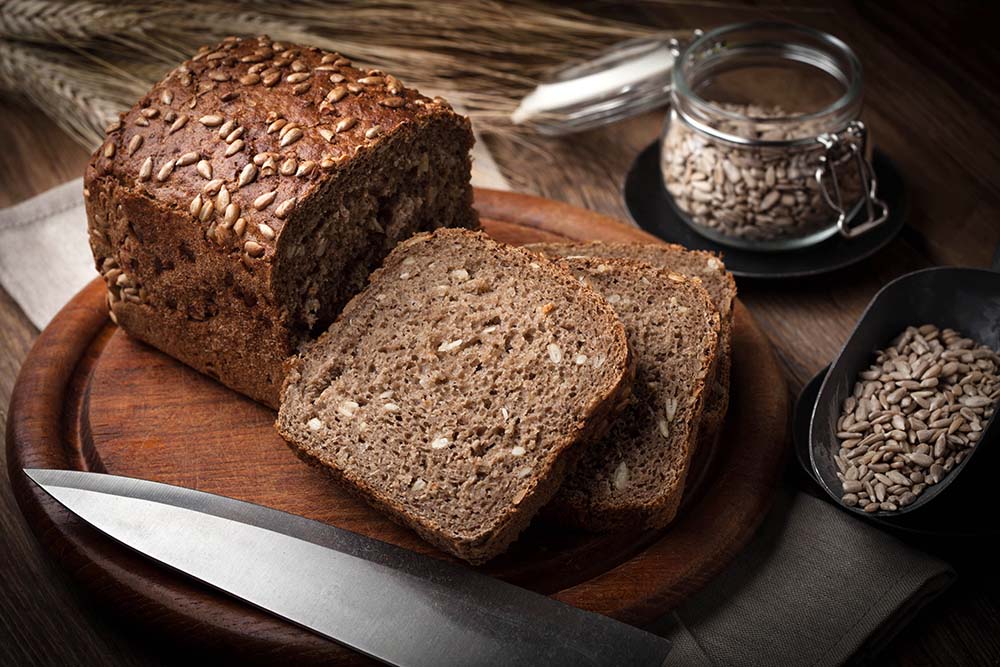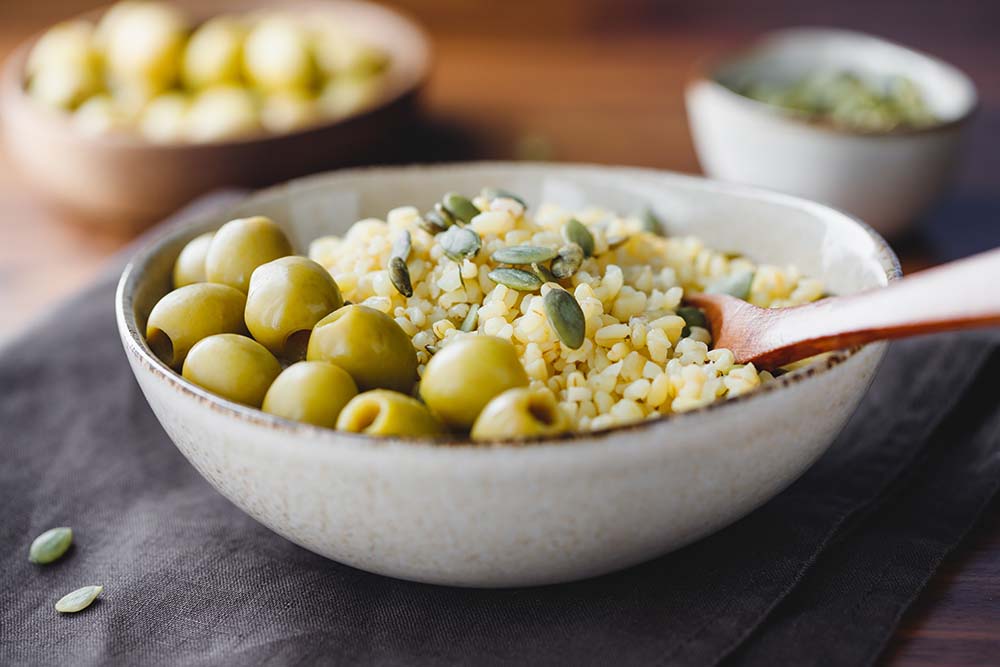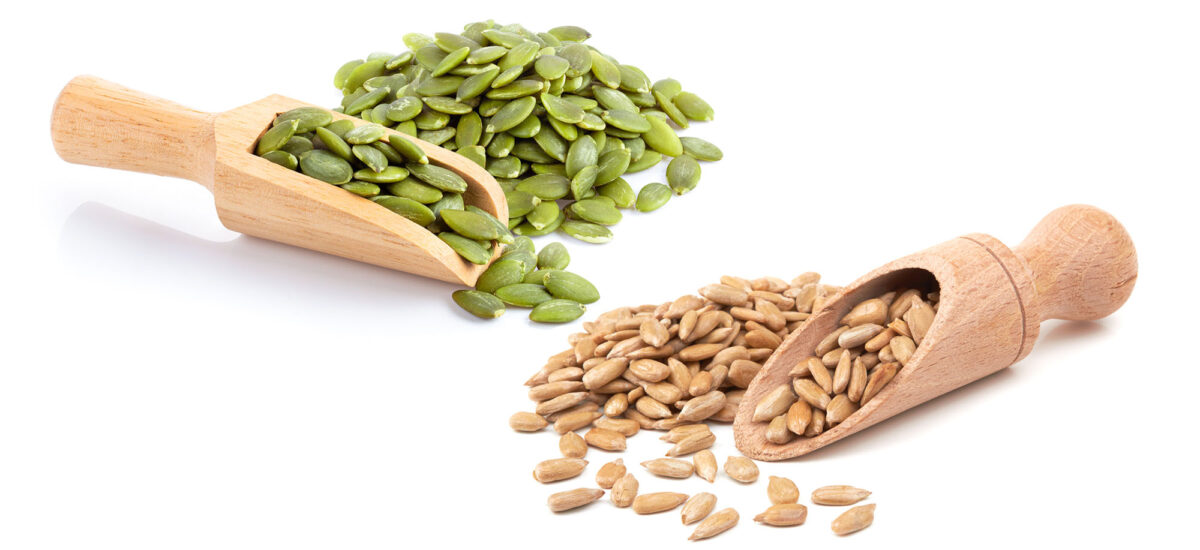Welcome to our comprehensive guide on sunflower seeds vs pepitas – two nutritious and versatile little seeds that offer a range of health benefits. We will explore the nutritional profiles of both sunflower seeds and pepitas, delve into their vitamins and minerals, and highlight their unique culinary characteristics.
These super seeds are not only a great addition to various dishes but also provide a wealth of nutrients that have positive effects on your well-being. Whether you’re looking to enhance your snacks, boost your nutrient intake, or explore new culinary possibilities, understanding the health benefits and nutritional values of these seeds will help you make informed choices.
Sunflower Seeds vs Pepitas: Nutrition Benefits Guide
We’ll now delve into the world of sunflower seeds and pepitas, exploring their health-promoting properties, comparing their vitamins and minerals, and uncovering their distinct flavors and origins.
Nutritional Content
Sunflower Seeds: Sunflower seeds are a nutrient-dense food, rich in healthy fats, fiber, and protein. They are a good source of vitamin E, folate, copper, magnesium, and selenium. They also contain a variety of antioxidants, including phenolic compounds and phytosterols.
Sunflower seeds contain about 8-11 grams of fiber per 100 grams, which is a little more than pepitas. The fiber in sunflower seeds is predominantly insoluble fiber, which adds bulk to the stool and supports digestive health.
Pepitas: Pepitas are also highly nutritious, packed with essential nutrients. They are an excellent source of protein, healthy fats, and dietary fiber. Pepitas are particularly rich in minerals like magnesium, manganese, phosphorus, copper, and zinc. They are also a good source of vitamins E, K, and B-complex vitamins.
With approximately 24-30 grams of protein per 100 grams, pepitas have a slightly higher protein content than sunflower seeds. It’s worth noting that the protein content can vary slightly depending on the specific variety and brand of seeds.
Heart Health
Sunflower Seeds: Sunflower seeds contain heart-healthy fats, including monounsaturated fats and polyunsaturated fats, which can help reduce cholesterol levels and promote cardiovascular health. They also provide phytosterols, which may contribute to lowering LDL cholesterol levels.
Pepitas: Pepitas are rich in monounsaturated fats and polyunsaturated fats, including omega-3 fatty acids, which are beneficial for heart health. These fats can help lower LDL cholesterol and reduce the risk of heart disease.
Bone Health
Sunflower Seeds: Sunflower seeds are a good source of minerals like magnesium, copper, and phosphorus, which are important for maintaining strong and healthy bones. They also contain trace amounts of zinc, manganese, and calcium, which contribute to bone health.
Pepitas: Pepitas are high in magnesium, phosphorus, manganese, and zinc, all of which play crucial roles in bone health. These minerals support bone density, strength, and structure.
Immune System Support
Sunflower Seeds: Sunflower seeds provide vitamin E, an antioxidant that helps support the immune system and protects cells from damage caused by free radicals.
Pepitas: Pepitas contain various antioxidants, including vitamin E, which support immune function and help protect against oxidative stress and inflammation.
Both sunflower seeds and pepitas offer an array of health benefits due to their nutrient-rich composition. They provide essential vitamins, minerals, healthy fats, and antioxidants that support heart health, bone health, and immune function. Incorporating these seeds into your diet can contribute to a well-rounded and nutritious eating plan.
Sunflower Seeds vs Pepitas: an in Depth Comparison
Discover how these small yet mighty seeds can contribute to your overall health and add a delightful touch to your culinary endeavors.
Sunflower Seeds
Sunflower seeds are the edible seeds of the sunflower plant (Helianthus annuus). They are small, oval-shaped seeds with a hard, black-and-white striped shell. Inside the shell, sunflower seeds have a tender, nutty kernel that is commonly consumed.
Sunflower seed kernels have been a popular snack and ingredient in various cuisines for centuries. They are commonly enjoyed roasted and salted, providing a crunchy and savory flavor. Sunflower seeds are also used in baking, added to bread, muffins, and cookies, or incorporated into granola bars and trail mixes.
What are the Health Benefits of Sunflower Seeds?

Nutrient-rich: Sunflower seeds are packed with essential nutrients, including vitamin E, magnesium, selenium, and various B vitamins. These nutrients play crucial roles in supporting overall health and well-being.
Heart health: Sunflower seeds contain heart-healthy fats, such as monounsaturated and polyunsaturated fats, which can help lower bad cholesterol levels and reduce the risk of heart disease. Additionally, the high vitamin E content in sunflower seeds acts as an antioxidant and supports heart health.
Antioxidant properties: Sunflower seeds are rich in antioxidants, including vitamin E and selenium, which help protect the body against oxidative stress and reduce the risk of chronic diseases.
Bone health: Sunflower seeds are a good source of magnesium, a mineral essential for maintaining healthy bones. Adequate magnesium intake is associated with improved bone mineral density and a lower risk of osteoporosis.
Weight management: Despite their small size, sunflower seeds are relatively high in fiber, which aids in digestion, promotes satiety, and helps regulate appetite. Including sunflower seeds in your diet may support weight management efforts.
Nutritional support: Sunflower seeds provide a good source of plant-based protein, making them a valuable addition to vegetarian or vegan diets. They also offer a range of vitamins, minerals, and phytochemicals that contribute to overall nutritional balance.
As with any food, it’s important to consume sunflower seeds in moderation as part of a balanced diet. If you have specific health concerns or dietary restrictions, it’s advisable to consult with a healthcare professional or registered dietitian for personalized advice.
It’s important to note that the specific nutritional profile of sunflower seeds can vary slightly depending on factors such as the variety of the seeds and how they are prepared (raw, roasted, salted, etc.). Nevertheless, sunflower seeds can be a nutritious addition to a balanced diet when consumed in appropriate portions.
Vitamins & Minerals
Sunflower seeds are rich in a variety of vitamins and minerals that contribute to their nutritional value. Here are some key vitamins and minerals found in sunflower seeds:
Vitamin E: Sunflower seeds are an excellent source of vitamin E, particularly in the form of gamma-tocopherol. Vitamin E is a powerful antioxidant that helps protect cells from oxidative damage.
Magnesium: Sunflower seeds are a good source of magnesium, an essential mineral involved in over 300 biochemical reactions in the body. Magnesium is important for bone health, energy production, muscle function, and nerve signaling.
Selenium: Sunflower seeds contain selenium, a trace mineral with antioxidant properties. Selenium plays a crucial role in supporting immune function and thyroid health.
B Vitamins: Sunflower seeds provide several B vitamins, including thiamin (B1), riboflavin (B2), niacin (B3), pantothenic acid (B5), and folate (B9). Vitamin B is involved in energy metabolism, red blood cell production, and brain function.
Copper: Sunflower seeds contain copper, a mineral necessary for the formation of connective tissues, iron metabolism, and the production of red blood cells.
Manganese: Sunflower seeds are a good source of manganese, which is important for bone health, metabolism, and antioxidant defense.
Phosphorus: Sunflower seeds provide phosphorus, a mineral essential for the formation and maintenance of healthy bones and teeth. It also plays a role in energy production and cell function.
These are just a few examples of the vitamins and minerals found in sunflower seeds. Consuming a varied and balanced diet that includes a variety of nutrient-dense foods can help ensure an adequate intake of essential vitamins and minerals for overall health and well-being.
Culinary Uses
Origin: Sunflower seeds are derived from the sunflower plant, scientifically known as Helianthus annuus. The sunflower plant is native to North America and was cultivated by Native Americans for thousands of years. Today, sunflower seeds are grown and consumed worldwide, with countries like Russia, Ukraine, Argentina, and China being major producers.
Taste: Sunflower seeds have a mild and nutty flavor with a slight sweetness. They can be enjoyed raw or roasted, and the roasting process enhances their taste, making them slightly more savory and crunchy.
Snacking: Sunflower seeds are often enjoyed as a snack on their own, either raw or roasted and salted. They can be purchased in-shell or shelled, allowing for easy consumption.

Baking: Sunflower seeds can be incorporated into baked goods like bread, muffins, cookies, and granola bars, adding a delightful crunch and nutty flavor.
Salads and Toppings: Sunflower seeds make a nutritious addition to salads, providing texture and taste. They can be sprinkled on top of green salads, grain bowls, or yogurt for an extra crunch.
Trail Mixes: Sunflower seeds are a popular ingredient in trail mixes, adding a protein-packed and energy-boosting element alongside other types of seeds, nuts, and dried fruits.
Cooking and Garnishing: Ground sunflower seeds can be used as a coating for meats or vegetables, adding a unique nutty flavor and crispy texture. Sunflower seed butter, similar to peanut butter, can be made and used as a spread or in recipes.
Oil Production: Sunflower seeds are also used for oil extraction. Sunflower oil is commonly used in cooking, frying, and baking due to its mild flavor and high smoke point.
Sunflower seeds are available in different forms, including shelled (without the outer hull) and unshelled (still encased in the hull). Shelled sunflower seeds are more commonly used for culinary purposes due to their convenience, while unshelled seeds require cracking before consumption.
Sunflower seeds are a versatile ingredient that can enhance the flavor and texture of various dishes. Their mild and nutty taste, along with their nutritional benefits, make them a popular choice in the culinary world.
Some people may have allergies or sensitivities to sunflower seeds, so it’s recommended to exercise caution if you or someone you know has such conditions.
Pepitas
Pepitas, also known as pumpkin seeds, are the edible seeds of pumpkins. They are flat, oval-shaped seeds that are typically green in color, although some varieties may have a white shell. Pepitas have a mild, nutty flavor and a slightly chewy texture.
This green seed is widely used in culinary preparations around the world. They can be enjoyed raw or roasted, and are commonly used as a topping for salads, soups, and baked goods. Roasted pepitas are often seasoned with spices like salt, pepper, or paprika to enhance their flavor. They can also be ground into a paste or used to make pumpkin seed oil, which is popular in certain cuisines.
What are the Health Benefits of Pepitas?
Nutrient-rich: Pepitas are packed with essential nutrients. They are a good source of protein, healthy fats, fiber, vitamins, and minerals. They contain notable amounts of magnesium, potassium, iron, zinc, and vitamin K.
Heart health: The healthy fats found in pepitas, including monounsaturated and polyunsaturated fats, can help support heart health by reducing bad cholesterol levels (LDL) and promoting good cholesterol levels (HDL). They also contain plant compounds like phytosterols and antioxidants that contribute to cardiovascular well-being.
Rich in antioxidants: Pepitas have an abundance of antioxidants, including vitamin E, phenolic compounds, and carotenoids. These antioxidants help protect the body’s cells from damage caused by free radicals, which can contribute to chronic diseases and aging.
Mineral support: Pepitas are a good source of several minerals crucial for overall health. For instance, their high magnesium content supports bone health, blood pressure regulation, and muscle function. They also provide iron, which is important for oxygen transport and preventing iron deficiency anemia.
Blood sugar control: The combination of fiber, healthy fats, and protein in pepitas contributes to improved blood sugar control. They have a low glycemic index, which means they have a minimal impact on blood sugar levels when consumed in moderation.
Anti-inflammatory properties: Pepitas contain various anti-inflammatory compounds, such as omega-3 fatty acids and antioxidants. These properties may help reduce inflammation in the body and potentially alleviate symptoms of inflammatory conditions.
Weight management: Pepitas can be beneficial for weight management due to their satiating effect. The combination of protein, healthy fats, and fiber content helps promote feelings of fullness, which can aid in controlling appetite and preventing overeating.
It’s worth noting that while pepitas are generally nutritious, they are calorie-dense. Therefore, portion control is important, especially if you’re watching your calorie intake. Additionally, individuals with specific dietary restrictions or allergies should be mindful of consuming pepitas.
Vitamins & Minerals
Magnesium: Pepitas are an excellent source of magnesium, which plays a vital role in many bodily functions, including bone health, muscle function, and energy production.
Zinc: Pepitas are high in zinc, an essential mineral that supports immune function, wound healing, and DNA synthesis. Zinc is also important for maintaining healthy skin and promoting optimal growth and development.
Iron: Pepitas contain iron, a mineral essential for the production of red blood cells and the transportation of oxygen throughout the body. Adequate iron intake helps prevent iron deficiency anemia.
Potassium: Pepitas provide a good amount of potassium, an electrolyte that helps maintain proper fluid balance, nerve function, and muscle contractions. Potassium also plays a role in regulating blood pressure.
Copper: Pepitas are a source of copper, a trace mineral involved in the formation of red blood cells, collagen production, and antioxidant defense. Copper also supports iron absorption and helps maintain healthy connective tissues.
Manganese: Pepitas contain manganese, which is necessary for the metabolism of carbohydrates, proteins, and cholesterol. Manganese also acts as an antioxidant and is involved in bone formation and wound healing.
Phosphorus: Pepitas are a good source of phosphorus, a mineral that contributes to bone and teeth health, as well as energy production. Phosphorus is also involved in cell signaling and maintaining pH balance.
Vitamin K: Pepitas contain vitamin K, which is important for blood clotting and bone health. Adequate vitamin K intake helps ensure proper blood coagulation and supports bone mineralization.
Vitamin E: Pepitas are a good source of vitamin E, a fat-soluble antioxidant that protects cells from damage caused by free radicals. Vitamin E also plays a role in immune function and may have anti-inflammatory effects.
B vitamins: Pepitas contain various B vitamins, including thiamine (B1), riboflavin (B2), niacin (B3), pantothenic acid (B5), vitamin B6, and folate (B9). These vitamins are essential for energy metabolism, nerve function, and the production of red blood cells.
Culinary Uses
Origin: Pepitas have a long history and are believed to have originated in the Americas, particularly in Mexico. They have been cultivated for thousands of years and have become a staple ingredient in various cuisines worldwide. Today, pepitas typically come from the variety of pumpkin, styrian pumpkins.
Taste: Pepitas have a rich, nutty flavor with a slightly sweet and earthy undertone. They can be enjoyed raw or roasted, and their taste intensifies when toasted.
Snacks: Roasted and seasoned pepitas make a delicious and nutritious snack on their own. They can be enjoyed as a standalone snack or mixed with other nuts and dried fruits.
Baking: Pepitas can be added to bread, muffins, cookies, and granola for a crunchy texture and nutty flavor. They can be used as a topping or mixed into the batter or dough.
Salads: Toasted pepitas can be sprinkled over salads, adding a pleasant crunch and nutty taste. They complement both leafy green salads and grain-based salads.
Trail mixes: Pepitas are a common ingredient in trail mixes, providing a nutritious boost along with other nuts, seeds, and dried fruits.

Toppings: Pepitas can be used as a garnish or topping for various dishes, including soups, stews, roasted vegetables, and grain bowls.
Sauces and pestos: Pepitas can be ground or blended into sauces, dips, and pestos, adding a creamy texture and nutty flavor. They work well in both savory and sweet applications.
Whether enjoyed on their own as a snack or incorporated into various recipes, pepitas can add a delightful crunch and nutty taste to your culinary creations.
Other Types of Seeds
In addition to sunflower seeds and pepitas, there are several other seeds that offer good health benefits and can be a valuable addition to your diet.
Chia Seeds
Chia seeds are rich in omega-3 fatty acids, fiber, protein, and various essential minerals.
Flax seeds
Flax seeds are an excellent source of omega-3 fatty acids, lignans, fiber, and antioxidants.
Hemp Seeds
Hemp seeds are rich in plant-based protein, omega-3 fatty acids, and minerals such as magnesium and zinc.
Sesame Seeds
Sesame seeds are a good source of healthy fats, fiber, and minerals like calcium and iron.
Pomegranate Seeds
Pomegranate seeds are packed with antioxidants, vitamins C and K, and fiber.
Pine Nuts
Pine nuts are a nutrient-dense seed with a rich, buttery flavor. They are a good source of healthy fats, protein, and various minerals such as magnesium and zinc.
These seeds offer their unique nutritional profiles and can be incorporated into various recipes to add flavor, texture, and health benefits. As with any food, it’s important to consume them as part of a balanced diet to reap their full advantages.
Conclusion of Sunflower Seeds vs Pepitas
Sunflower seeds vs pepitas: they’re small powerhouses of nutrition, offering a range of health benefits and essential nutrients. Sunflower seeds are known for their vitamin E content, heart-healthy fats, and antioxidant properties. They provide a good amount of fiber, protein, and minerals like copper and magnesium.
Pepitas, on the other hand, are rich in minerals such as magnesium, manganese, and zinc, along with vitamins E, K, and B-complex vitamins. They are also packed with dietary fiber and heart-healthy fats.
Incorporating sunflower seeds and pepitas into your diet can support various aspects of your health, including heart health, bone health, and immune system function. Whether you sprinkle them on salads, add them to baked goods, or enjoy them as a healthy, portable snack, these seeds offer a delicious and convenient way to boost your nutrient intake.
Remember to choose unsalted varieties to keep your sodium intake in check, and consider purchasing raw or roasted seeds to retain their nutritional value. With their delightful taste, versatility, and impressive nutritional profiles, sunflower seeds and pepitas make a delightful addition to a balanced and wholesome diet. So, grab a handful of these nutrient-packed seeds and enjoy the benefits they offer for your overall well-being.
Want to know the difference between a Jalapeño and a Fresno chile?





